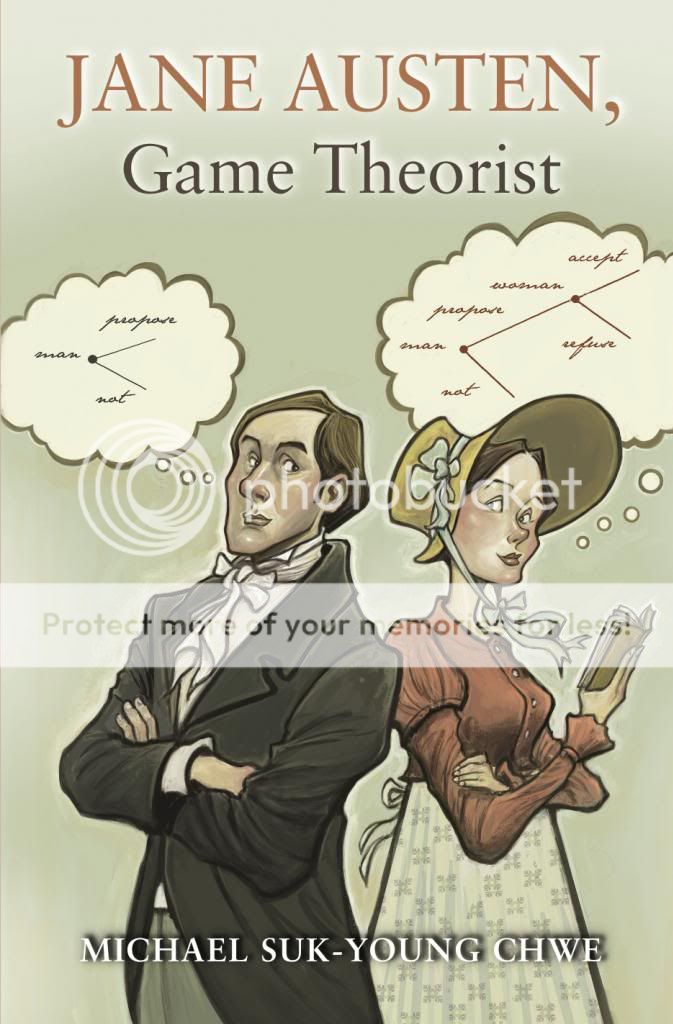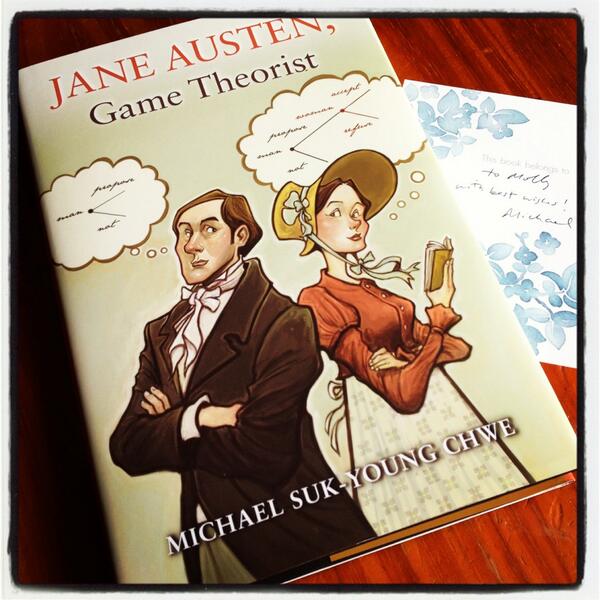


This is insightful literary analysis at its most accessible and enjoyable. Well researched and with an excellent index, the book will appeal to Austen fans who can see her characters in another light.Ĭhwe's volume is a valuable first step toward a more interdisciplinary and much more inclusive field of decision sciences. This is such a fabulous book-carefully written, thoughtful and insightful.Ĭhwe makes an argument for Austen as a founder of decision science in this 2013 book that boasts an impressive array of diagrams and hard-nosed textual analysis. An enjoyable read." -Susan Skeath, coauthor of Games of Strategy Michael Chwe shows the efficacy and pitfalls of such thinking in her characters' actions, and in their perceptions and understanding of the actions of others. Jane Austen, in particular, develops a clear model of strategic thinking in her novels. 9 tables."Polished, organized, and well-documented, this book demonstrates the existence of well-defined game theory in historical texts.

Jane Austen, Game Theorist brings together the study of literature and social science in an original and surprising way. He considers how Austen in particular analyzed "cluelessness"-the conspicuous absence of strategic thinking-and how her sharp observations apply to a variety of situations, including U.S. Chwe makes the case that these literary forebears are game theory's true scientific predecessors. Although game theory's mathematical development began in the Cold War 1950s, Chwe finds that game theory has earlier subversive historical roots in Austen's novels and in "folk game theory" traditions, including African American folktales. With a diverse range of literature and folktales, this book illustrates the wide relevance of game theory and how, fundamentally, we are all strategic thinkers. Jane Austen, Game Theorist shows how this beloved writer theorized choice and preferences, prized strategic thinking, argued that jointly strategizing with a partner is the surest foundation for intimacy, and analyzed why superiors are often strategically clueless about inferiors.

But as Michael Chwe reveals in his insightful new book, Jane Austen explored game theory's core ideas in her six novels roughly two hundred years ago. Click here to purchase from Rakuten Kobo Game theory-the study of how people make choices while interacting with others-is one of the most popular technical approaches in social science today.


 0 kommentar(er)
0 kommentar(er)
